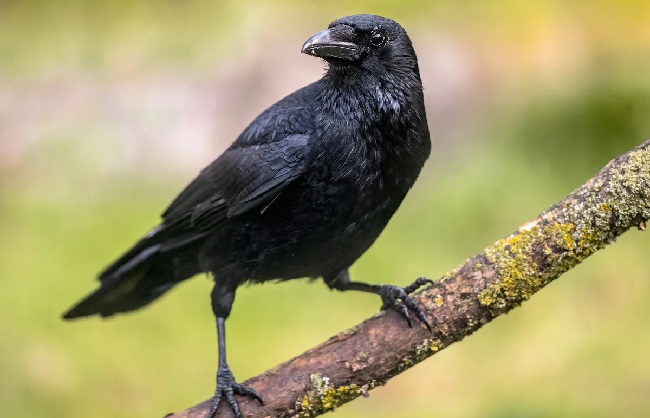Ravens, with their jet-black feathers and intriguing aura, have long captivated our fascination and found their place in various myths, folklore, and literature.
While they might seem like an exotic choice for a pet, understanding their temperament and traits is crucial before considering adopting one. This comprehensive guide offers a deep dive into what it means to have a raven as a pet.

Raven Temperament
Ravens are incredibly intelligent birds, often compared to dolphins and primates in terms of cognitive abilities. They are capable of problem-solving, mimicry, and even demonstrating emotions like empathy. However, ravens can also exhibit destructive behavior.
They are natural foragers and have a propensity to peck and tear at objects. Moreover, ravens are known to be noisy, producing a variety of sounds that could be disruptive in a household setting.
The Demanding Care of Ravens
Ravens require a specialized diet primarily consisting of insects, grains, fruits, and small animals. In captivity, a balanced diet of dog food, fruits, vegetables, and vitamin supplements is usually recommended.
Moreover, due to their intelligence, ravens require mental stimulation to keep them from boredom, which can lead to destructive behavior. This means providing them with toys, puzzles, and interaction.
Ravens are also long-lived birds, with a lifespan of up to 30 years. This longevity means a long-term commitment for any potential pet owner.
Legal Considerations
Before considering a raven as a pet, it’s crucial to understand the legalities. In many regions, including the United States, it is illegal to own a raven as a pet without specific licenses and permits due to their protected status under the Migratory Bird Treaty Act.
Understanding Their Wild Nature
Ravens are wild birds, and their natural habitat is in open landscapes, often in mountainous areas. In captivity, they require a large, secure aviary, as confining them to a small cage can lead to stress and health problems.
The Ethical Implications
Keeping a raven, or any wild bird, as a pet raises ethical questions. Is it right to confine a creature that naturally roams vast distances? Before adopting a raven as a pet, it’s important to consider whether you can provide the bird with a fulfilling and healthy life.
The Social Nature of Ravens:
Ravens, much like us humans, are social creatures. In the wild, they often form complex social structures and communicate with a variety of sounds, gestures, and behaviors. When kept as pets, ravens require substantial social interaction.
This includes regular play and bonding time with their human caretakers. Without this social stimulation, a pet raven can become distressed and display problematic behavior.
Health Concerns for Pet Ravens
Ravens can be prone to a variety of health issues, particularly when kept in captivity. These can include feather-plucking due to stress, obesity due to a lack of exercise, and various dietary deficiencies.
Potential pet owners should ensure they have access to a veterinarian who specializes in avian care. Regular health checks will be essential to keep your raven in good shape and to address any potential health issues promptly.
The Emotional Intelligence of Ravens
Ravens’ remarkable cognitive abilities extend to emotional intelligence as well. They have been observed showing empathy towards their kin and even holding ‘funerals’ for their deceased companions.
This emotional depth can be both a blessing and a curse for potential pet owners. While it means a raven can form a strong bond with their caretaker, it also means they are more susceptible to emotional distress.
Adopt, Don’t Shop
If you are seriously considering a raven as a pet and have carefully weighed all the factors, it’s important to source your raven ethically.
Some ravens in the pet trade are captured from the wild, which is both illegal and harmful to their populations. Instead, consider adopting a raven from a rescue center.
These birds are often rehabilitated after injury and are unable to be released back into the wild. By adopting, you can provide a caring home to a bird in need.
Conclusion
While ravens are captivating creatures with remarkable intelligence and unique traits, they present substantial challenges as pets. They demand specialized care, a stimulating environment, and considerable space.
In addition, potential legal and ethical considerations add further complexity to the idea of pet ravens. Therefore, it’s essential to thoroughly research and understand the implications of adopting such a creature before making a decision.
Always remember, adopting a pet means ensuring their healthy, happy, and fulfilled life, whether it’s a dog, a cat, or a raven.
























